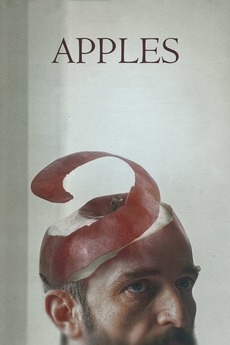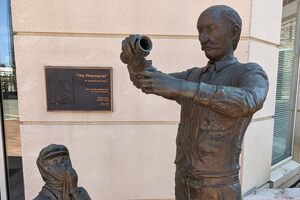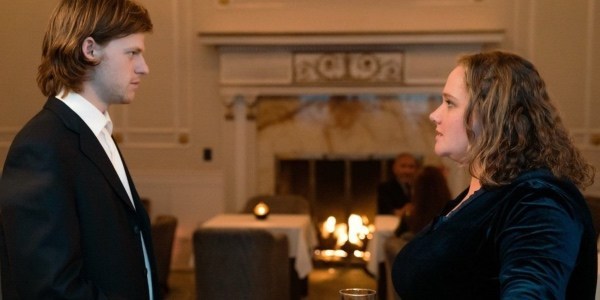BLACK PANTHERS: Framing Resistance
One of acclaimed French New Wave director Agnes Varda‘s lesser-known films documents the summer of 1968 in Oakland, California. Less than thirty minutes long, Black Panthers shows the resistance group through the words of its own members and the curious eyes of a visitor. Its directorial humility makes it a valuable firsthand source of the events it documents, and its many interviews provide a solid foundation for this short-form documentary.
Through A Stranger’s Eyes
Varda, the French filmmaker, places herself in Oakland in August of 1968 with a camera and a matter-of-fact tone. She films Black Panther gatherings and speeches, occasionally narrating the history and events of the party. She films amid the “Free Huey” rallies of 1968, while Huey Newton was on trial for the death of a police officer.
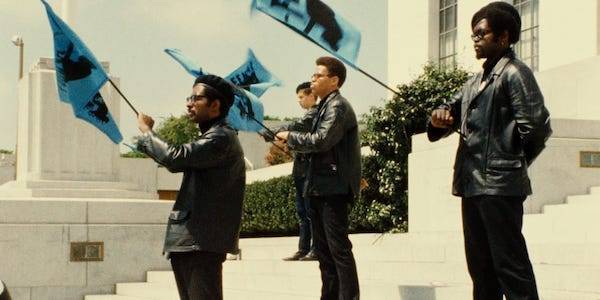
Varda interviews members of the Black Panther Party, leaders, and bystanders at the rallies. In perhaps the most intriguing portion of the film, she interviews Huey Newton himself in jail. She asks about his living conditions, and his beliefs, but mostly just let him speak about what he finds important.
The film documents real events explains past ones and describes the mission of the Black Panthers to its audience. It comes to no conclusions, as it covers a very short period of time, but provides an immersive glance into a moment of extreme social upheaval and change, along with the voices of those most closely involved.
Unexpected Insight
As a director known for the French New Wave, Agnes Varda is perhaps an unexpected creator for a documentary like this. A visitor to the United States, the interviewer-cinematographer-director transfers her curiosity and immersion to her audience.
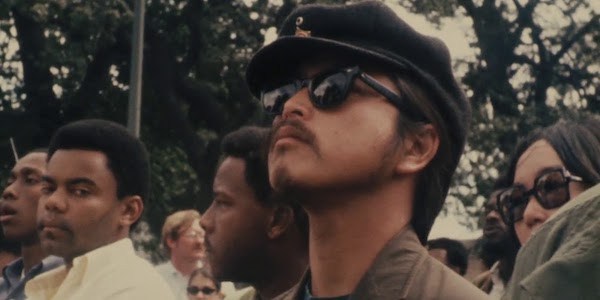
Footage of speakers (including Stokely Carmichael), Huey Newton, and other members of the Black Panther Party takes center stage in Varda‘s documentary. Her own narration is an informative but minimal sinew that binds the interviews together and provides context. She asks questions, but doesn’t insert herself or outside opinions into the documentary. She seems to want to show a realistic view of what was happening, and why — not through her own speculation, but from those involved.
Varda attends rallies and speeches during her time in Oakland, asking those around her for their ideas and goals. She highlights a range of voices, from Black Panther leadership to youth. She films marches, protests, and even some of the military exercises practiced by the Black Panthers. Meanwhile, she explains some of the more polarizing aspects of the party, like why they carried guns, and their mission to protect the Black community from police violence.
A Quiet Legacy
Varda takes in a revolution with curiosity and openness. As an outsider with intense curiosity and the objectivity that comes from her relative unfamiliarity with the United States, she shows a fresh perspective into the art of documentary.
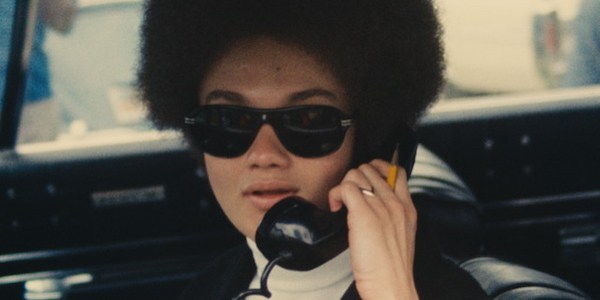
Though Black Panthers is not well-known by itself, its footage appears in the acclaimed PBS documentary, Black Panthers: Vanguard of the Revolution. Varda‘s interviews and footage are unique as a source contemporary to the movement itself; her status as a filmmaker on the ground at the time of the events she is filming makes Black Panthers a singular source of insight.
Black Panthers is invaluable as a firsthand source of information, but it should also be looked to as a source in the form of documentary: its aim is to show, not to persuade, and it refuses to force a narrative onto its audience. This short documentary may be less recognized than it deserves, but it is priceless as a modest glimpse into a moment within a movement, and its immersive style of documentary is one that we would do well to emulate.
Does content like this matter to you?
Become a Member and support film journalism. Unlock access to all of Film Inquiry`s great articles. Join a community of like-minded readers who are passionate about cinema – get access to our private members Network, give back to independent filmmakers, and more.
Join now!
